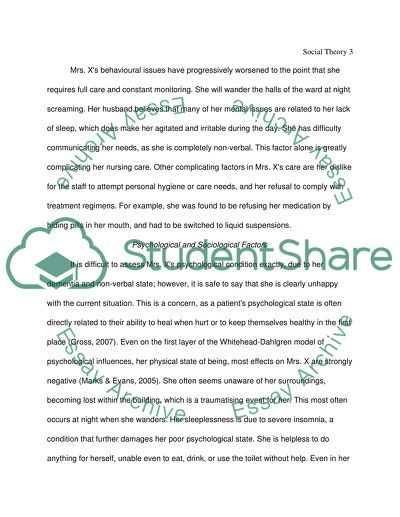Cite this document
(“Alzheimer's Disease Patient and Social Theory Essay”, n.d.)
Retrieved from https://studentshare.org/nursing/1410562-alzheimers-disease-patient-and-social-theory
Retrieved from https://studentshare.org/nursing/1410562-alzheimers-disease-patient-and-social-theory
(Alzheimer'S Disease Patient and Social Theory Essay)
https://studentshare.org/nursing/1410562-alzheimers-disease-patient-and-social-theory.
https://studentshare.org/nursing/1410562-alzheimers-disease-patient-and-social-theory.
“Alzheimer'S Disease Patient and Social Theory Essay”, n.d. https://studentshare.org/nursing/1410562-alzheimers-disease-patient-and-social-theory.


